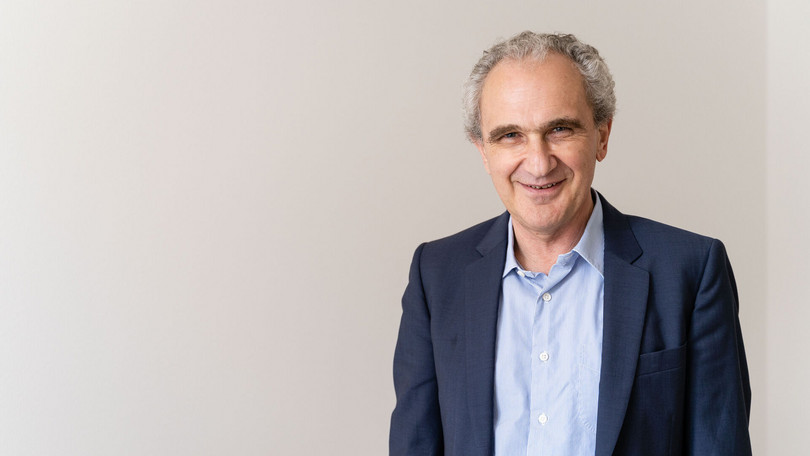Visiting Professor at Leuphana University: Motivational Psychologist Peter Gollwitzer
2019-12-16 On New Year's Eve, year after year: Quit smoking. Get more exercise. Call your parents. Lose weight. Be more self-confident. Be more involved with your friends. By the end of January at the latest, you buy a new pack of cigarettes, know that you will use your annual pass for the muscle stall no more than two or three times, and only realise that you have failed again when the bag of potato chips or sweets is already empty. Why is it so difficult to achieve one's goals? Motivational Psychologist Prof. Dr. Dr. h.c. Peter Gollwitzer gives an answer.
After completing his doctorate at University of Texas (USA), Peter Gollwitzer habilitated at Ludwig Maximilian University Munich in 1988. He was head of the "Intention and Action" group at Max-Planck-Institute for Psychological Research in Munich. In 1993 Gollwitzer was appointed to a professorship at University of Constance and in 1999 to New York University. In 2017 he was elected a member of Leopoldina and in 2018 he received an honorary doctorate from Leuphana, where he has been a visiting professor at the Institute of Psychology since 2019.
His groundbreaking research has received several awards, including the Max Planck Research Award from Max Planck Society, the TRANSCOOP Award for International Research Cooperations from Alexander von Humboldt Foundation, and the Wilhelm Wundt-William James Award 2019 from the European Federation of Psychologists' Associations (EFPA), the American Psychological Association (APA) and the American Psychological Foundation (APF).
"People often assume that all you have to do is set great goals and life will change for the better," explains Gollwitzer, "but research has shown that the influence of goals on behaviour is surprisingly small. People who set goals do not behave much differently than people who do not set goals."
After observing this result in numerous studies, he asked himself: "How can I make goals more effective?" He discovered that it is planning that distinguishes people who achieve their goals from those who do not. "If you plan when, where and how to achieve your goal, you are better prepared to take advantage of favourable opportunities and overcome obstacles. The most effective are 'if-then' plans", says Gollwitzer: "If the critical situation (be it an opportunity or an obstacle) occurs, then I will perform an action that will help to achieve the goal!" An 'if-then' plan for the goal of smoking less could be, for example: "If I wait for the train at the station and I want to smoke, then I'll buy a coffee and enjoy it!" Or "If, after putting the kids to bed at night, I feel the need to relax with sweets, I'll take a walk instead!" He has demonstrated in his experiments that the mental elaboration of such if-then plans leads to a significant increase in the rate at which goals are achieved. However, a precondition is that the thinking takes place in ‘if-then’ conjunctions. The scientist explains: "Normally, the realisation ratio of goals is 20 to 30 percent, which means that only one in three people achieves the set goal. In contrast, if you plan how you want to achieve the set goal, the rate goes up to 60-70 %. It is a drastic effect." This effect occurs regardless of the area of life in which the goal was set, so there is no difference between, for instance, professional goals and family goals.
People who tend to be introverted are often asked to "be more sociable". Gollwitzer explains: "'Be more sociable!' is only one goal. That is not a plan, yet. If you set out to be more sociable, you have to figure out how you're gonna do it." For example, to plan that when you meet people in the elevator, you immediately start a conversation. "Such if-then conjunctions automatise our action control. It's no longer the oppressive 'you gotta get social' that drives our actions, but it is the person we meet in the elevator, who directly triggers our action to speak to them.
Self-management guides and mainstream psychology almost always rely on strength of will (e.g. 'You just have to really want it, then it works!'). However, Gollwitzer empirically demonstrates quite clearly that willpower correlates only very weakly with the achievement of a goal - instead, it depends on whether one has thought up the implementation in if-then plans. When asked whether or not a person's strength of will is the decisive factor, the American psychologist says: "No, because it is particularly important for people with little strength of will, self-discipline, and conscientiousness to equip their goals with if-then plans in order to increase their chances of achieving them.



